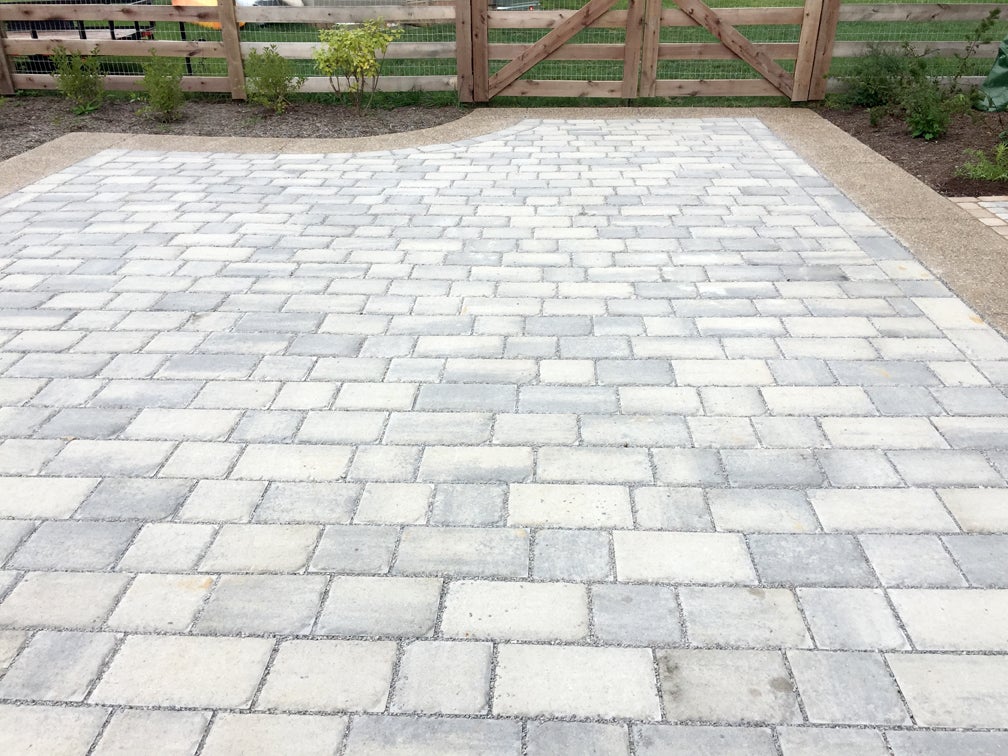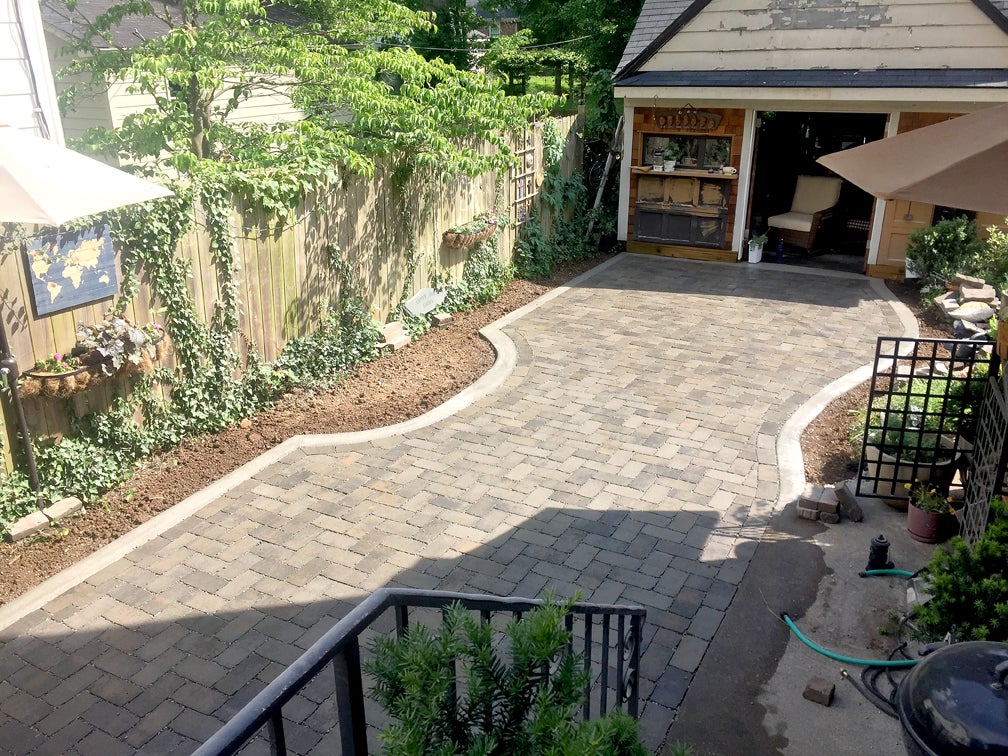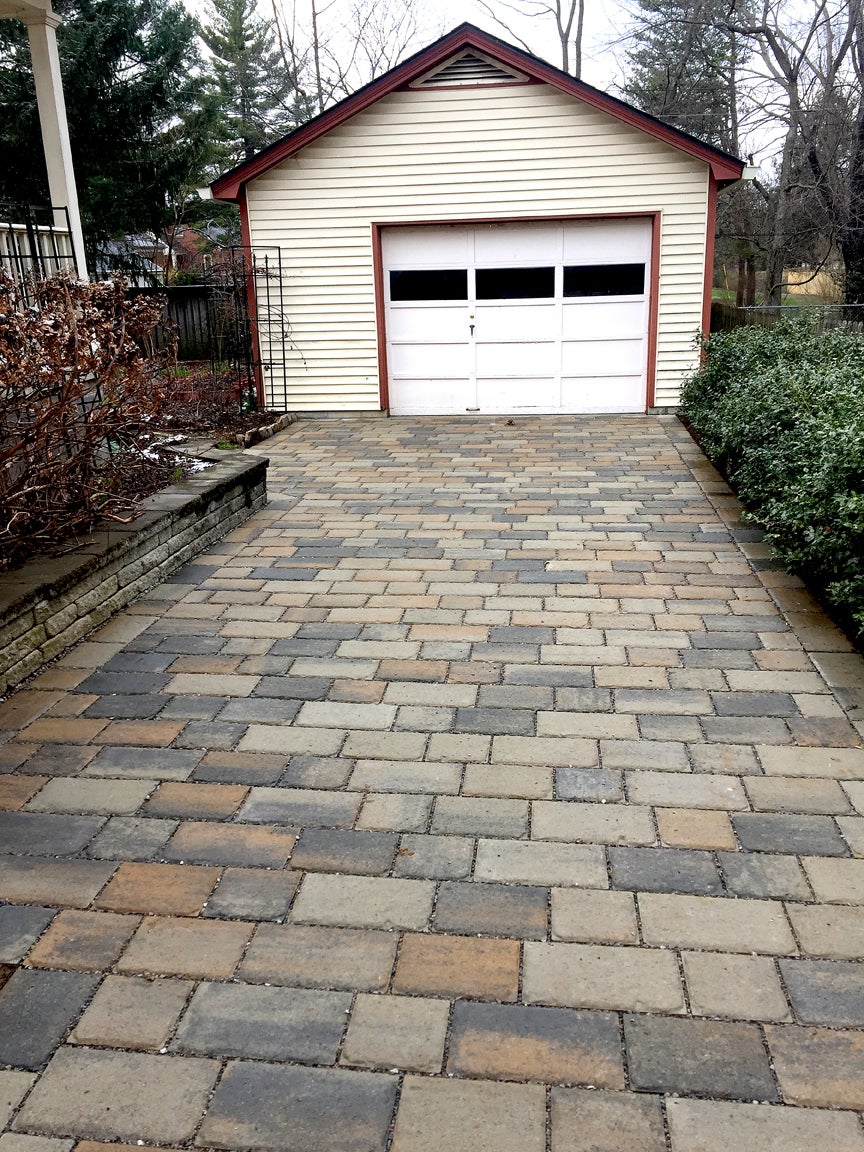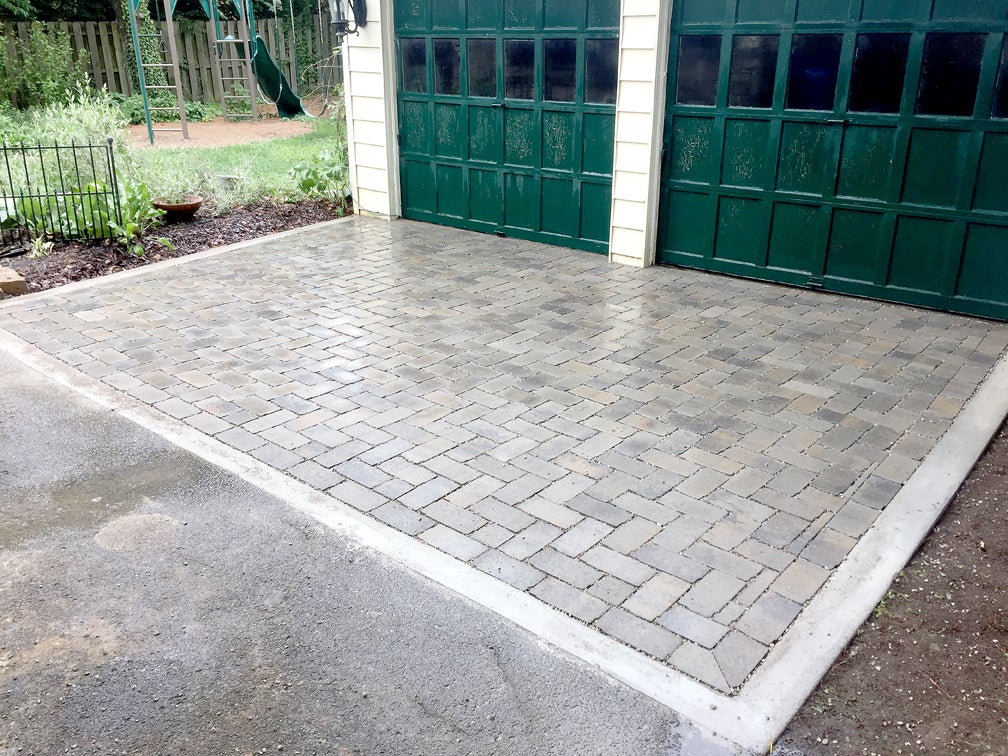“When it rains, it drains” — a popular tagline that accompanies permeable or porous pavement of any kind — concrete, asphalt and pavers. Permeable pavers — also called permeable interlocking concrete pavements (PICP) — provide storm water management by reducing volume and rate of water, filter pollutants and hold water on site without needing retention ponds. Both sustainable, and incredibly durable, PICP make a great alternative for sidewalks, driveways and patios.
Permeable simply means that the material allows water to pass through. It is not the paver itself that is permeable, but the joints between the pavers and the base. Permeable pavers are specifically designed with a tab for spacing, which results in a wide joint to allow for drainage once filled with rock chips. As with any construction of pavement, the base is of utmost importance and what allows the water to recharge groundwater supply instead of running into the nearest drain.
The paver and wide joint alone will not make the project permeable. Depending on the filtration rate of the site, the base is typically constructed of geotextile fabric, an under drain, about a one-and-a-half-foot layer of gravel and aggregate chips under and between the pavers. Standard quality pavers are 2-3/8 inches thick with or without tabs, while PICP pavers are typically 3-1/8 inches thick and usually have a tab to allow for joint spacing. Like pavers, the excavation of a proper base, gravel fill, paver material, equipment and hand laying each paver can be costly.
These concrete cast blocks come in many sizes, colors and thicknesses, which creates endless design possibilities. Designs include turf stone where pavers are filled with turf as well as projects that look very similar to standard pavers, but are constructed differently to allow for drainage. This application is also great for properties where the land is completely flat (not likely in Kentucky, but possibly in some urban areas) or if you are building a retaining wall and bringing pavers to the wall.
Permeable pavement has the ability to solve at least some of our storm water issues in Franklin County. When properly installed, they can vastly reduce storm water infrastructure, piping, basins and drains and help alleviate some pressure on the Kentucky River watershed. Neighboring Fayette County issues grants for storm water improvement projects, including grants to replace impervious surfaces with permeable pavers.
Andrea Wilson Mueller is a native Frankfortian and graduate of the University Of Kentucky College Of Design with a Bachelors of Arts in Design. She was raised in the horticulture industry by her dad and is the first and only APLD certified landscape designer in the state of Kentucky. She specializes in residential and commercial outdoor spaces of all sizes and styles with an ecological focus. Find out more at www.insideout-design.org.














